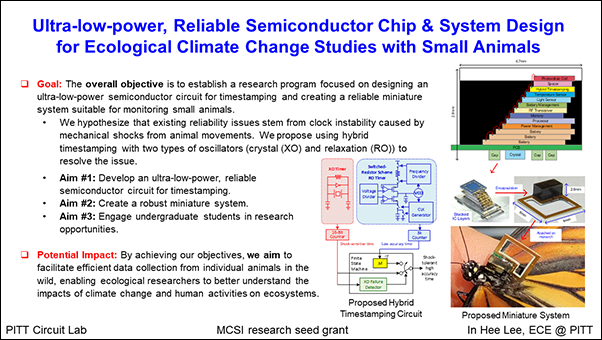This project seeks to develop a small, reliable, and low-power semiconductor system that accurately monitors and timestamps the locations of small animals in order to advance ecologists' understanding of the impacts of climate change and human activity on animal populations and ecosystems.

Research Methodology
To combat the circuit's current clock instability, which may be a result of mechanical shocks from animal movements, a hybrid timestamping system comprised of two oscillators—crystal and relaxation—will be designed and tested for improved accuracy. A robust miniature system will then be developed for the improved circuit.
Research Outcomes
A reliable, low-power hybrid timestamping semiconductor circuit will be developed and tested for improved timestamping accuracy. To make this circuit suitable for a wide range of environmental conditions, a robust miniature system to accompany this circuit will also be designed. This project additionally seeks to engage undergraduate students in research efforts.
Research Goals
This semiconductor chip and miniature system aims to enhance ecological research initiatives by facilitating accurate, efficient data collection from individual animals in the environment. This will allow ecologists to better understand how animals and ecosystems are impacted by climate, as this system should allow for more accurate data to be collected from a wider range of species.
